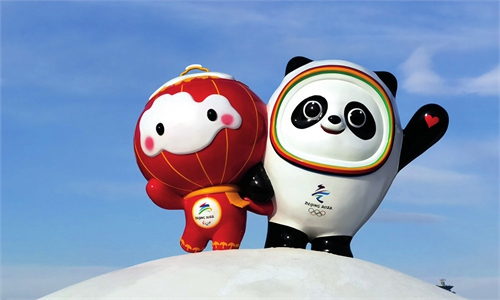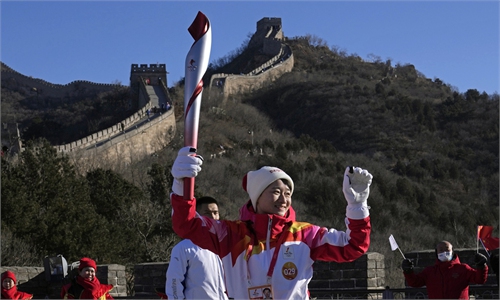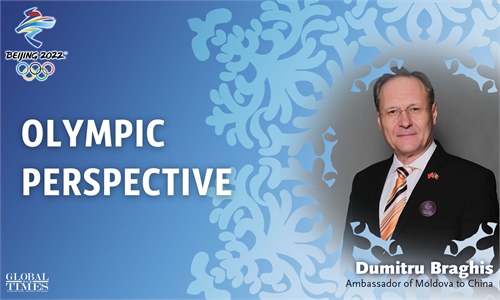Chinese-style romance: Beijing 2022 kicks off on 'lichun,' together for a shared 'warm, hopeful' future
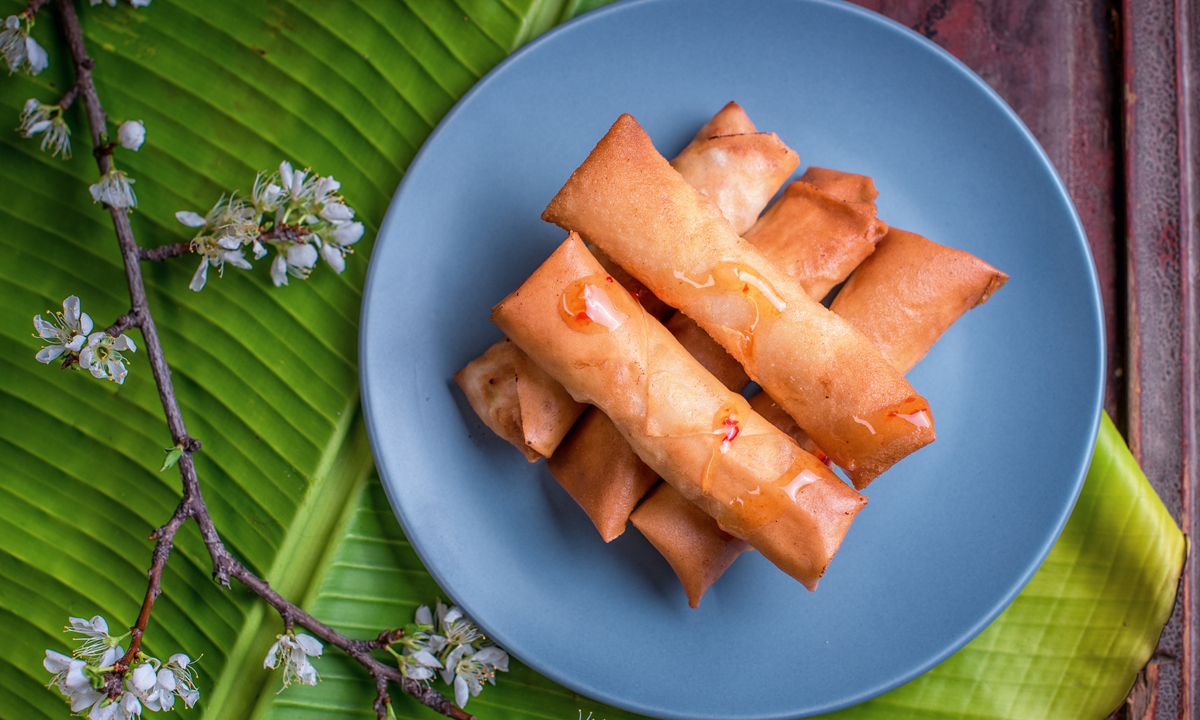
Photo: CFP
As the world holds its breath for the opening ceremony of a spectacular Winter Olympic Games in Beijing, the sports gala, which kicks off on February 4 - the day marks "lichun" meaning the start of spring, is also believed to be an inspiring signal to the world under the shadow of COVID-19 rampage: people are gathering together for a shared "warm, hopeful" future.
In China, the first solar term of spring, and also of the new lunar year, is called "lichun," which falls around February 4 every year. This day is always regarded as important in the country as spring is thought to be the most vibrant time of the whole year because it signals birth and rebirth. Therefore, on the day of "lichun," people often hold certain ceremonies and events which involve prayers for a prosperous coming year.
The onset of "lichun" sees grass breaking the ground, the day time starting to lengthen, and more sunshine and rain. Farmers are getting busier and locals are generally performing more outdoor activities. As an old farming proverb goes, lichun yushui dao, zao qi wan shuijiao ("rain comes after lichun, and this is the time to get up earlier and sleep later." Another proverb has it: yinian zhi ji zaiyu chun ("a year's planning starts with the spring").
In some places, people still follow the tradition of yaochun (a bite of spring) where they will eat chunpan (a mixture of vegetables), chunbing (spring pancake) and chunjuan (spring roll). Chunjuan is also a delicacy provided to athletes during the Beijing Winter Olympic Games.
Liu Bailing, an expert on Chinese folk customs from Luoyang, Central China's Henan Province, said the solar term is romantic. The Games of ice and snow sports are held on this day, which is a very good omen.
"The timing of 'lichun' is perfectly matched with the slogan 'together for a shared future. The Games will also be a great opportunity for China to present its ancient traditional culture to the world, to better know and understand China," Liu said.
To embrace the spring, many foreigners in China are celebrating the "good omen" in a uniquely Chinese style.

Dev Raturi, an Indian actor and entrepreneur.Photo: Courtesy of Dev
Dev Raturi, an Indian actor and entrepreneur who has been living in China for 16 years, told the Global Times on Thursday that he has decorated his restaurant [in Xi'an, Northwest China's Shaanxi Province] with gifts from his Chinese friends, including New Year scrolls and paint of "fu" - the Chinese character for good fortune or luck.
Dev, with his wife and parents-in-law, gathered his friends from Pakistan, Bangladesh, Nepal and made dumplings together on Wednesday.
"Eating dumplings is a tradition of extending wishes for Changchang jiujiu - long time and live. Dumpling is similar to momo in India. Some scholars say momo is originated from China," Dev said.
"We also put coins in dumplings and hope for a chance to get rich," he joked.
Dev believed that "lichun" signifies the coming of spring, a season full of energy, power, and vitality. Sports can also make people positive, energetic and active.
"Opening the Olympic Games on the day of 'lichun' is a kind of symbolization and connection between spring and sports. It carries the Chinese President's ambition to ignite Chinese passion for ice and snow sports. Maybe in the future, snow sports will grow and develop in China, just like the plants grows in spring," Dev said.
More importantly, living in Xi'an, a city emerging from the ravage of coronavirus, Dev also believed that the Games could gather people together for a shared "warm and hopeful" future.
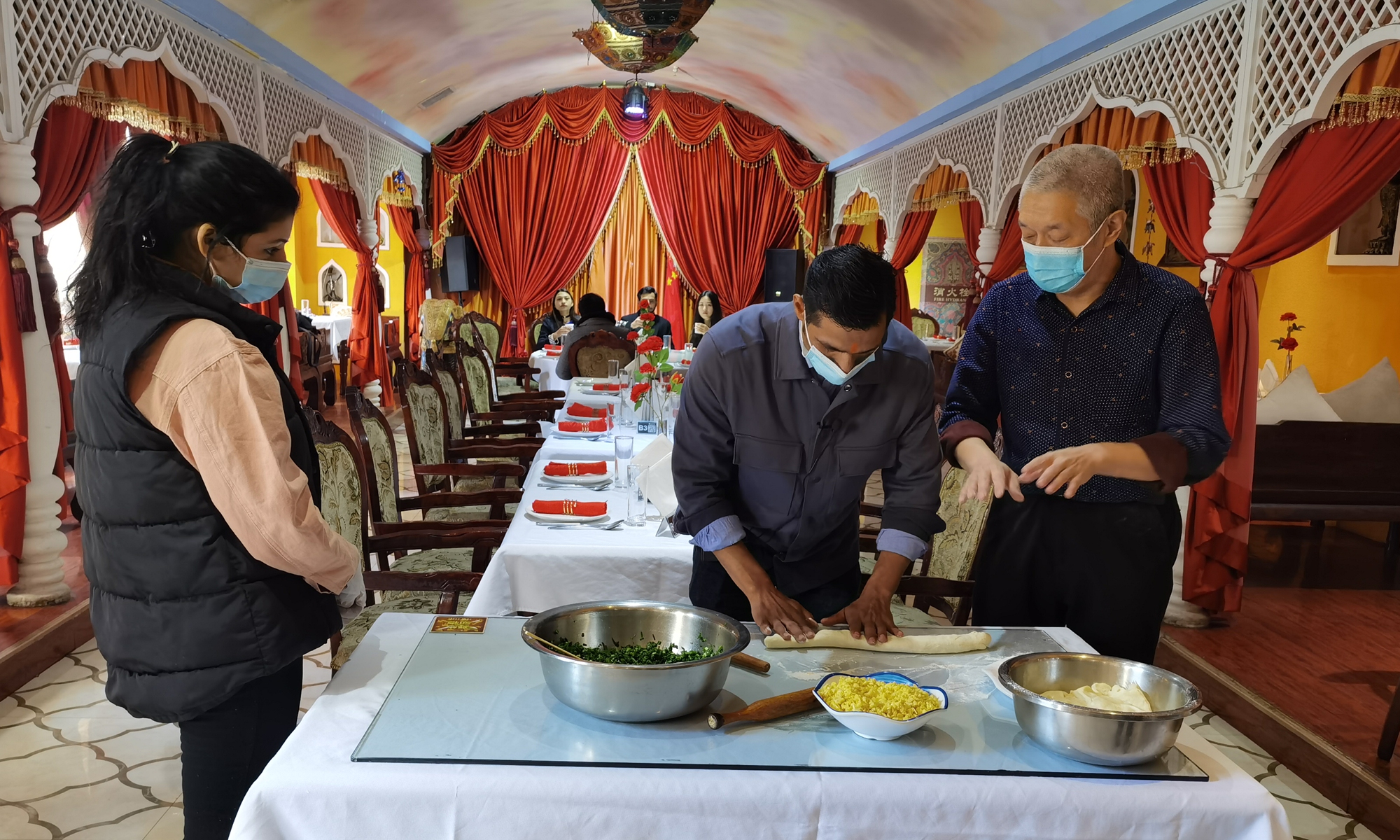
Dev Raturi, an Indian actor and entrepreneur,makes dumplings with his family. Photo: Courtesy of Dev
Brazilian athlete Nicole Silveira who is staying at the Olympic Village in Yanqing told the Global Times on Thursday that she received a backpack filled with Beijing 2022 gear. As the Winter Olympics 2022 coincides with the Chinese New Year, on the New Year's Eve, there were volunteers walking around and gave the athletes flowers to celebrate the Chinese New Year together, Silveira said.
In Brazil, she said there's no such way of celebrating the beginning of the spring, but people celebrate the Easter.
It's "cool" to celebrate such festivals in China in the Olympic Village where there are other activities such as writing Chinese calligraphy and couplets, Silveira said.
A reporter from Japan's Kyodo News who is covering the Olympics in Beijing told the Global Times on Thursday that "lichun" brings people a feeling of warmth and rebirth and the Beijing Winter Olympics, kicking off on this very special festival, will bring to the world and humanity hope of a better future.
How world embraces spring
Apart from China, many other countries also share similar cultural traditions in greeting the spring and embrace "lichun" with their own customs.
In Dev's home country India, people celebrate a traditional Hindu festival that is called Holi, also known as the "Festival of Spring." It originated in the old times for hoping the harvest, and is held from February to March every year. Dancing and singing are how Indian people celebrate at the gala. The ritual is "colorful," that people will paint their faces and bodies with colors, and will also throw colored pigments and powders on others to show their blessings.
Similar to the Chinese culture, in South Korea, people greet the spring season with Tteokguk, a soup dish served with sliced rice cakes. As ancient Koreans worshipped the sun, the white sliced rice cake represents the sun and its blessings.
Vietnam's cultural tradition of celebrating the spring is deeply influenced by the Chinese culture. They believe the Spring Festival is an auspicious timing to leave the old and welcome the new. Vietnamese rice dumplings are similar to the Chinese ones, made of pork meat, mung bean paste and wrapped up with banana leaves, it is a classic Spring Festival dish for many families.
The Japanese reporter said Japan's celebration of spring festival was also deeply influenced by the Chinese culture, during which day Japanese people would pour out beans as a way to expel the devils.
In further north, Russian people celebrate the festival Maslenitsa, which is scheduled one week before the season of Lent, the fasting season in the Russian Orthodox Church calendar. During the week, people enjoy meat and dairy products and bake round pancakes into golden yellow to appreciate the sun, and have bonfire for celebrations in the dark night.
Swiss snowboarder Nicolas Huber told the Global Times on Thursday that people in Switzerland celebrate the festival in a special way. "We all dress up in crazy costumes like 'monsters' and go through the city and have a huge party. The idea behind this is that 'with the monster', we can scare away the winter, and so spring is coming."
In celebrating the Spring Festival, Chinatowns across the UK have become many local people's choice to visit including royals such as Prince Charles. The "get-together" culture is important for people in the UK to celebrate the spring season. The festival of "Ostara" is held every year on March 20 at Stonehenge, a prehistoric monument in England, when people gather together in the early morning to watch the sunrise over the ring of stones to bless a wonderful new year.
In the US, there is a special "socks-burning" event held in Annapolis, the state capital of Maryland to celebrate the arrival of Spring. People burn socks there to symbolize that they can wear shoes barefoot when the weather warms up. It is a hope to end the winter soon and the spring starts early. American people also do their spring cleaning as an annual tradition to shake away the winter's decaying vibe in the hope they receive good fortune.
The annual Rijeka Carnival, Europe's largest Carnival festivities, is held every year in Rijeka, Croatia to celebrate Spring. During the carnival, the most eye-catching event is the performance of the Halubian bellmen, which is also called Zvončari in Croatian.
The performance is related to a longstanding folk custom: In the carnival season, the bell ringers will dress in flamboyant cloths, and ring bells extremely loud in hope to scare away evil spirits, and to awake new lucky spirits in the springtime.
